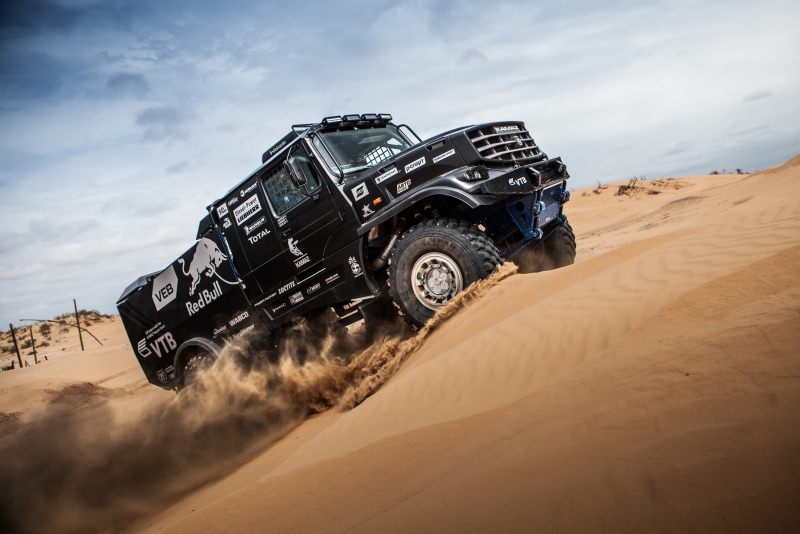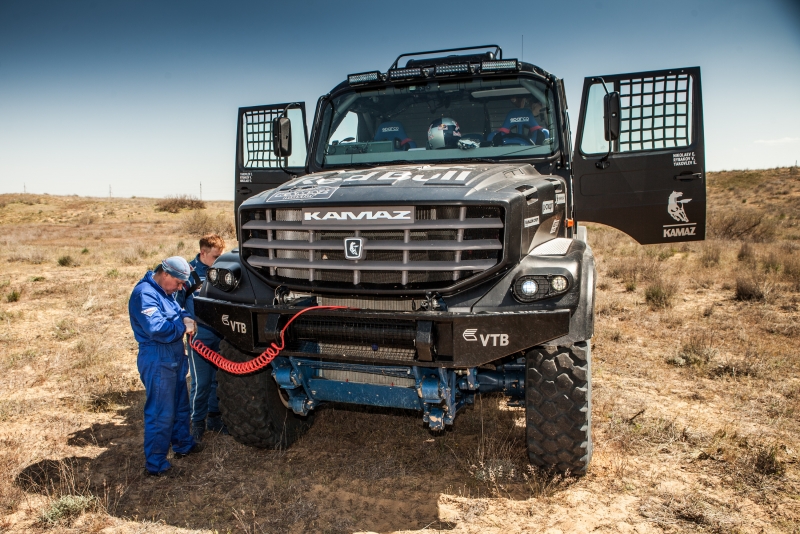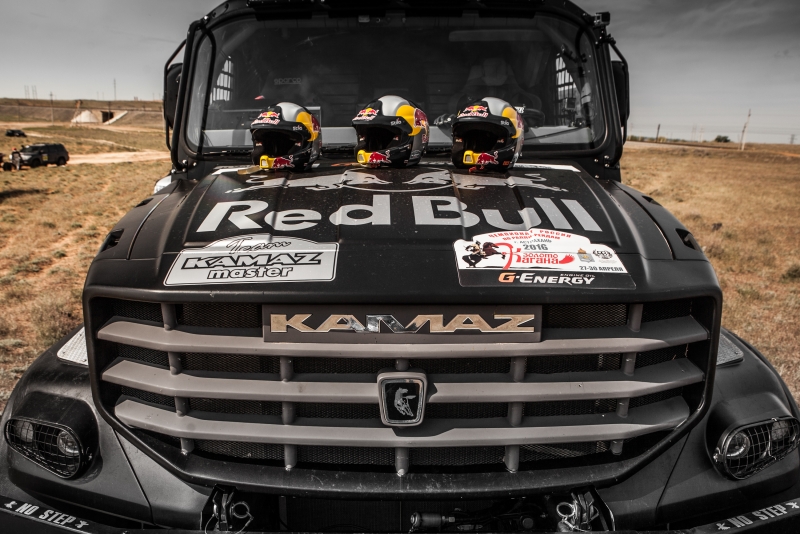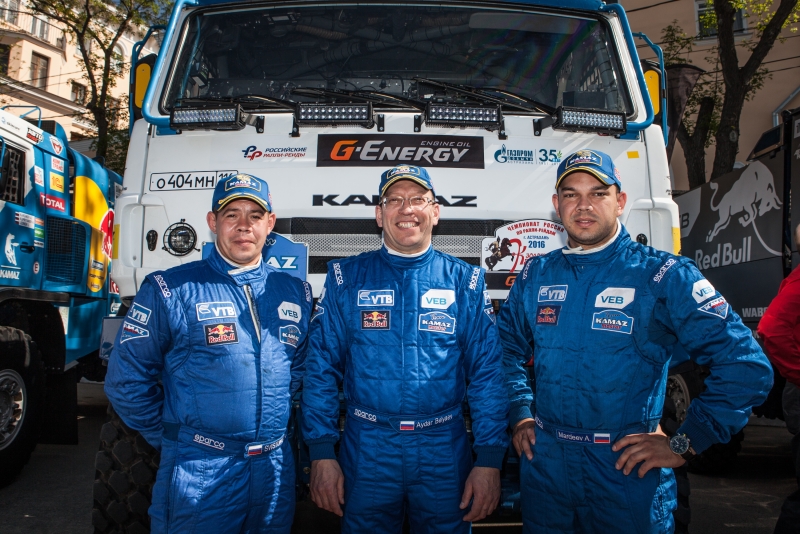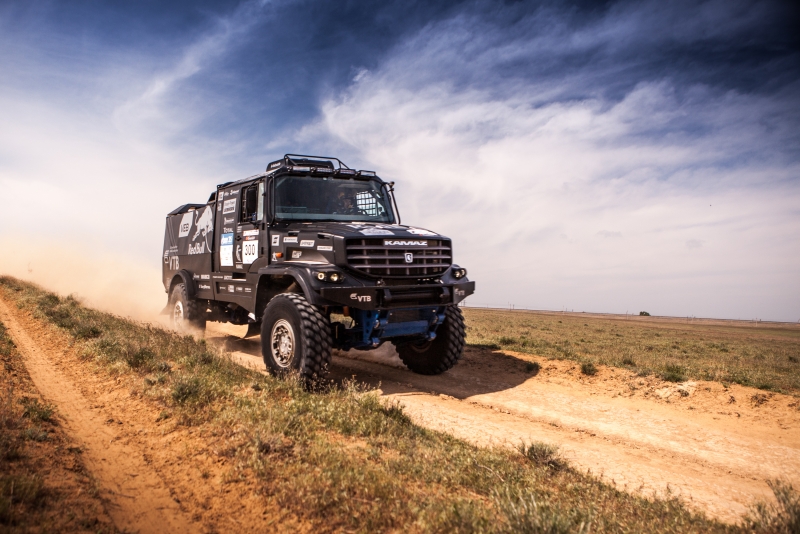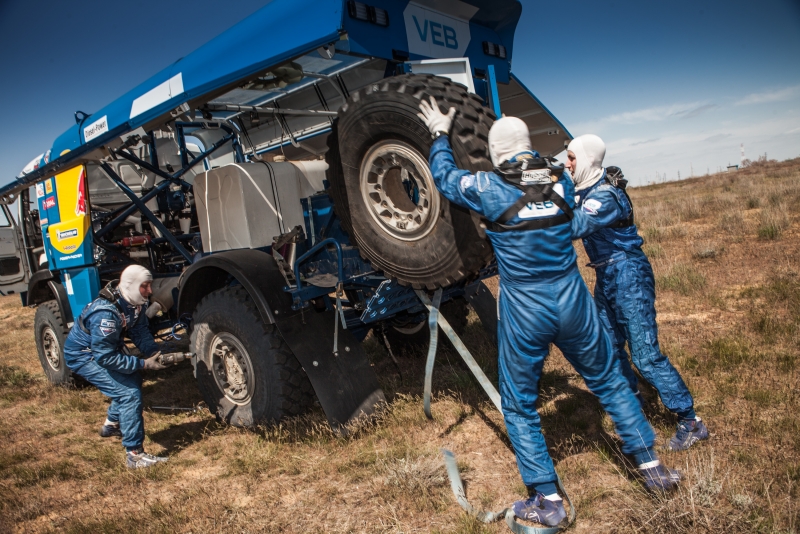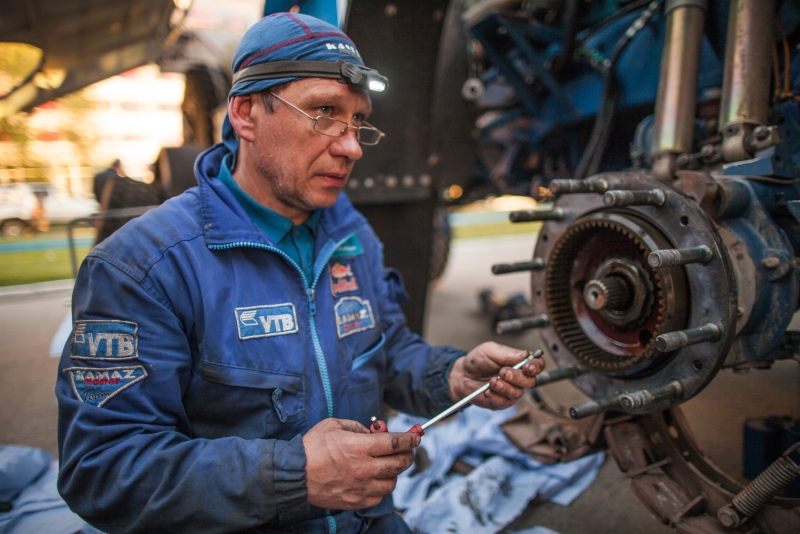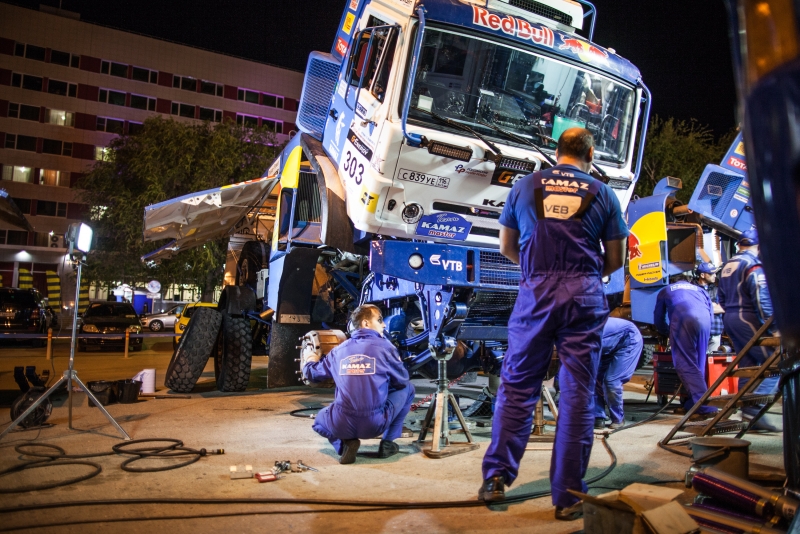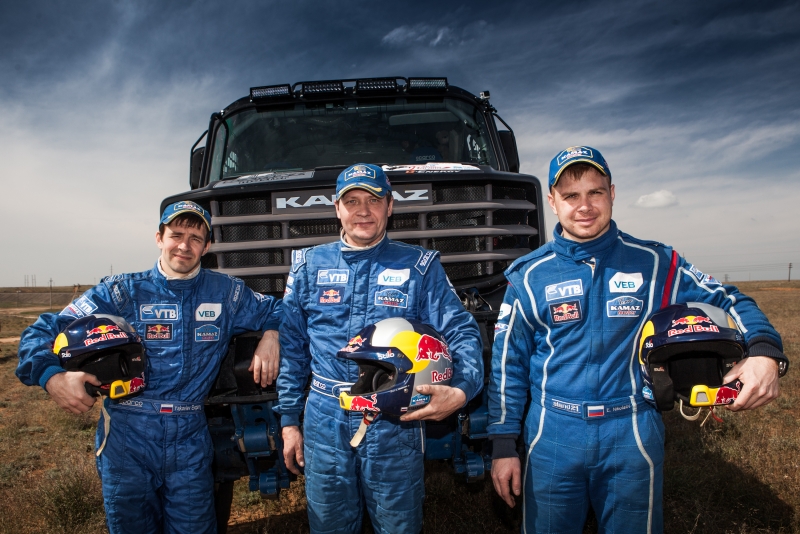Russia’s rally king: A guide to the new KAMAZ-Master truck
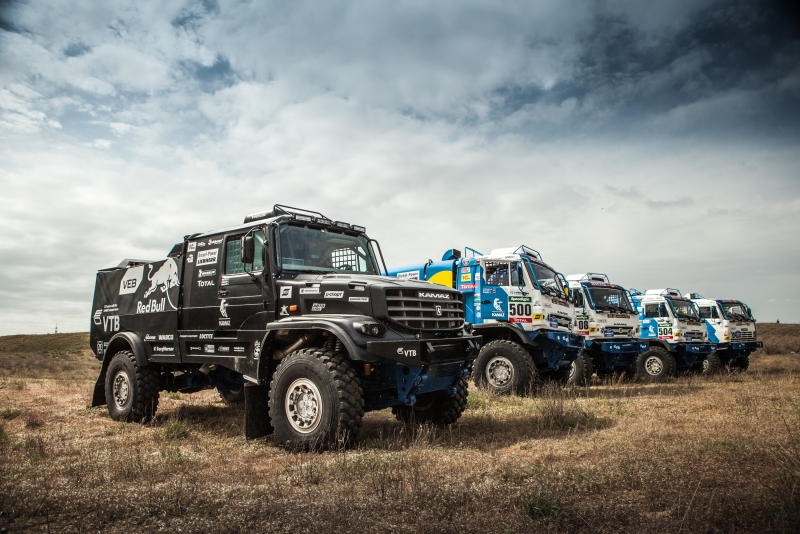
The KAMAZ-Master team.
Press photoThe sixth Silk Way rally, a prestigious international marathon race, set off from Moscow’s Red Square on July 8. The world’s leading rally drivers are taking part in it.
Among the headliners of the Moscow-Beijing rally are Russian trucks from the KAMAZ-Master team, which has for many years vowed the audiences with its skill at the Dakar rally. Just before the Silk Way rally, the team presented its new hooded truck (previously KAMAZ trucks did not have a hood – RBTH), which – according to KAMAZ engineers – holds the key to future rally success for Russia.
1. A vehicle in black
The new KAMAZ model will be easily recognizable due to its unusual color. Instead of the usual bright-blue hues that gave the team its nickname “Blue Armada,” the new truck is dressed in a monochrome black “tuxedo.”
Engineers are planning to give the new KAMAZ the team’s traditional colors by the time of the Dakar rally in January, once its tests have been successfully completed. The new truck will have its first test run at the Silk Road rally: The man at its helm is the Dakar-2013 champion, Eduard Nikolayev.
2. More comfortable than ever
Although comfort (in the traditional meaning of the word) at a rally is a relative concept, all teams are trying to make their vehicles as comfortable for the crews as possible. Exhausted drivers cannot be expected to set new world records.
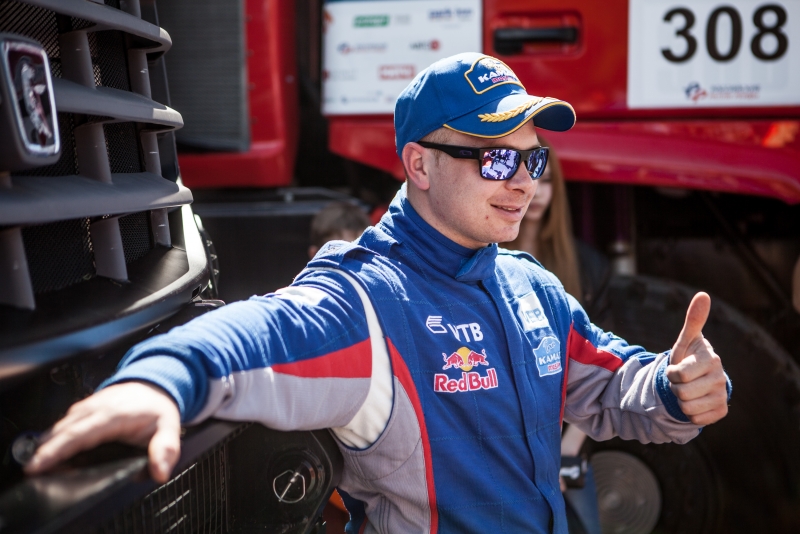 Press photo
Press photo
The new KAMAZ truck is expected to perform a true revolution as far as comfort is concerned. In the usual KAMAZ, the seats of the driver and the navigator are situated right above the wheels, making all the defects of the road easily felt and increasing the risk of spinal injury. In the hooded version, the cabin has been moved to the middle of the wheel base, considerably easing vertical loads and blows.
Having said that, Dakar champion Nikolayev still maintains that he will make the truck perform at the maximum of its capabilities: “We shall be driving as fast as necessary to experience the usual pressures,” he told RBTH.
3. Smooth jumps
One peculiar feature of the new truck is the symmetrical distribution of weight, i.e. equal load distribution between the front and the back axles. This is a huge advantage for a truck. Thanks to this balance, the vehicle can make a smooth landing after a jump from a springboard and have better maneuverability in the sand.
However, by the time of the Dakar rally, KAMAZ engineers will have to give up this new feature: When the new model was already ready, new rules for the Dakar rally were introduced banning symmetrical weight distribution. So by January engineers will change everything and ease the load on the back axle at the expense of the front one, the team’s technical director Vladimir Guba told RBTH.
4. ‘Blind’ descent
The first tests have shown that the hooded configuration makes it possible to better control the vehicle’s behavior in featureless terrain. The new truck has shown spectacular results off-road, on so-called road-test stretches of the route, where spatial orientation becomes particularly important.
At the same time, the hooded version of the truck does not ensure good vision in dunes. Having said that, the team’s manager Sergei Savostin told RBTH that no vehicle in the world can provide good visibility in a desert: When a truck mounts a dune, all that the driver can see – irrespective of whether it is a hooded truck or not – is the sky.
“It is then that the side window really helps,” explained Savostin. “Only then can the driver understand when to slow down in order not to roll down the dune head-first.”
Instaweek: 12 reasons why Russians are still in love with the classic Lada>>>
Subscribe to get the hand picked best stories every week
All rights reserved by Rossiyskaya Gazeta.
Subscribe
to our newsletter!
Get the week's best stories straight to your inbox
